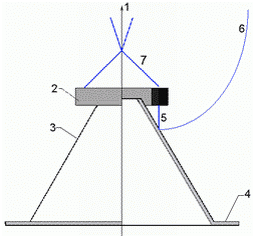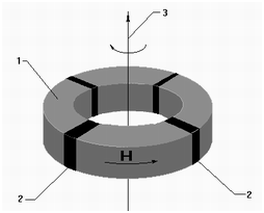Torsion field
| Previous chapter ( Radio waves ) | Table of contents | Next chapter ( Resonant energy link ) |
Corresponding Wikipedia article: Torsion field
Contents
Definition
The torsion field is not an independent fundamental field. It is most consistent with the flows of the low energy aetheric vortices.
| Torsion field | Aetheric vortices and beams |
|---|---|
| Wave propagation without attenuation. | The lightweight vortices move linearly and penetrate the dense bodies, including metals. The vortices lose their energy for various reasons, although in some cases they absorb energy of the surrounding aether. |
| Information transmission without energy. | There is the aetheric energy and the abstract information outside of space and time. |
| Effect on the living organisms. | Any magnetic field influences on the living organisms. |
| Shape effect. | The aetheric beams reflections from the interfaces (see "Shape"). |
Dr. Edgar L. Hollingshead called it the odic force, and the flow of vortices had been called the "odic ray"[1].
Tolchin’s inertsioid is not more than a mechanical toy, which utilizes friction and viscosity. The action of any fundamental law of mechanics would not cause a different motion direction on land and on water.
Akimov’s torsion generator
This generator is an application of the electromagnetic radiation principle for the aetheric motion over the annular magnet circumference, which produces a flow of aetheric vortices directed by a conical shaped device. The eddy currents in the shape of conical spiral produce the gradient of static aetheric pressure, which is directed from the wide section to the narrow section.
Axion field
The axion field of A.A. Shpielman is the same torsion field. This generator features the ring, which consists of the ferrite (1) and the magnets (2) rotating at high speed:
Properties
The torsion fields specially affect metals, because the metallic electrons get a lot of energy because of the low field attenuation. These effects refer to the molten metals and even to the solid metals.
The torsion fields easily decompose water into oxygen and hydrogen. An energy effective Kanarev's electrolytic cell (Russian patent 2227817) has the conical shape.
Hutchison's effect utilizes Tesla's coils and the torsion fields. The low scientific skill of his experiments does not accurately determine the conditions of these effects, which comprise the cold metal melting (at room temperature).
See also
References
- ↑ Are X-Rays Outclassed by Powerful New “Odic Ray”? Modern Mechanix, March 1922
| Previous chapter ( Radio waves ) | Table of contents | Next chapter ( Resonant energy link ) |





